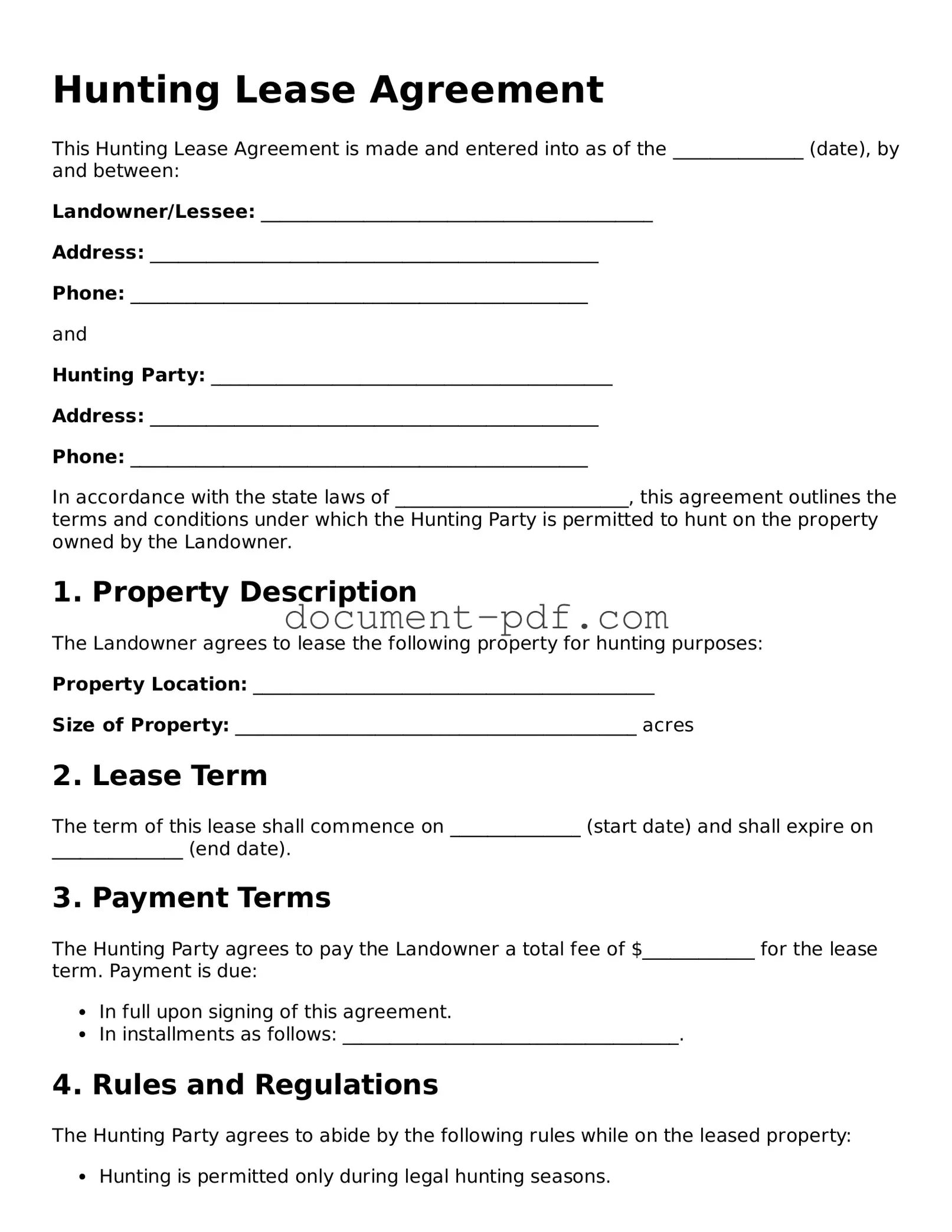Attorney-Approved Hunting Lease Agreement Document
A Hunting Lease Agreement is a legal document that outlines the terms and conditions under which one party grants another the right to hunt on their property. This agreement serves to protect the interests of both the landowner and the hunter, specifying rules, payment details, and liability issues. For those interested in hunting on private land, filling out this form is an essential step in securing permission.
To complete the process, click the button below to fill out the Hunting Lease Agreement form.
Access Hunting Lease Agreement Editor Here

Attorney-Approved Hunting Lease Agreement Document
Access Hunting Lease Agreement Editor Here
Finish the form without slowing down
Edit your Hunting Lease Agreement online and download the finished file.
Access Hunting Lease Agreement Editor Here
or
Click for PDF Form
